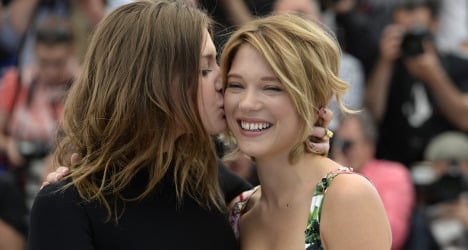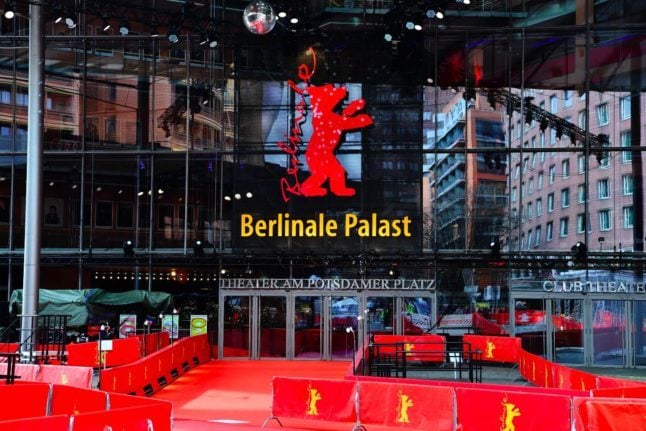Who’s Léa Seydoux?
She’s an award-winning 28-year-old actress and model.
Why is she in the news this week?
Seydoux was featured in the August issue of French Grazia, the women’s fashion and gossip magazine, and gave a lengthy interview, during which she made controversial comments about lesbians and female beauty.
Tell me more.
While speaking about her own self-image, Seydoux said the following:
“There have been moments where I’ve found myself pretty and sexy, but there are times when I find myself much less beautiful – a bit of a lesbian, you could say (laughs).”
The actress did immediately try to qualify her remarks by adding: "I’m not saying that lesbians aren’t beautiful," but the damage was done.
The reaction in France has been partly scathing and partly bemused. Some commentators, particularly from the LGBT community, have condemned her and her remarks as stupid, offensive and homophobic.
Others, however, have expressed their confusion as to why Seydoux’s comments have been so forcefully criticized.
Why is it such a big deal, then?
Well, there’s a certain irony in Seydoux saying what she said. Although she’s had roles in several high-profile movies like Inglorious Basterds and Midnight in Paris, she’s best known for portraying a lesbian on screen.
Seydoux became a bit of an overnight superstar in France and beyond when she won the coveted Palme d’Or at this year’s Cannes Film Festival for ‘La Vie d’Adele – Chapitre 1 & 2’, a film entitled ‘Blue is the Warmest Colour’ in the English-speaking world.
In it, she plays Emma, a blue-haired art student who falls in love with 15-year-old Adèle (played by Adèle Exarchopoulos).
The film, directed by Abdellatif Kechiche, has been the subject of a lot of controversy, with one reviewer claiming it contains “the most explosively graphic lesbian sex scenes in recent memory.”
And that’s even before ‘Blue is the Warmest Colour’ has been released in cinemas, which will happen in October.
Seydoux (L) kisses 'Blue is the Warmest Colour' director Abdellatif Kechiche after the film won the Palme d'Or at Cannes in May. Photo: Alberto Pizzoli/AFP
Give us a flavour of how people have been reacting in France.
One commenter on Twitter denounced Seydoux in no uncertain terms:
“Lesbophobia is homophobia + sexism. Léa Seydoux is intellectual emptiness + vanity.”
La #lesbophobie, c'est l'homophobie + le sexisme. #LéaSeydoux c'est le néant intellectuel + la vanité.
— Supervener (@SupervenerParis) August 12, 2013
20 Minutes journalist Alice Coffin, who is herself gay, also accused Seydoux of lesbophobia.
“I think the crass idiocy of Léa Seydoux is only a flavour of the lesbophobia that will surround the release of ‘La Vie d’Adèle.’”
Je pense que les conneries crasses de lea #seydoux ne sont qu un avant gout de toute la lesbophobie qui va entourer sortie de la vie d adele
— Alice Coffin (@alicecoffin) August 12, 2013
LGBT website Yagg has led the charge against Seydoux, however. Co-founder Xavier Héraud said on Twitter: “Léa Seydoux – you’re really good in ‘Blue is the Warmest Colour,’ but please don’t talk any more about lesbians.”
A Léa Seydoux: Tu es très bien dans la Vie d'Adèle, mais ne parle plus des lesbiennes s'il te plaît. http://t.co/dFnO5AX8Un
— Xavier Héraud (@folkfurieuse) August 12, 2013
On Monday, Yagg journalist Julien Massilon claimed: “Léa Seydoux thinks there’s no such thing as a feminine lesbian.”
That fury, however, has prompted a bit of a backlash, with many defending the actress.
“Yagg is going a bit too far,” said @Cam_mat on Twitter.
“Léa Seydoux isn’t saying that lesbians are masculine. Just that the role she played is.”
Other observers also castigated those criticising Seydoux. "Here we go, we're off again with these half-baked interpretations of Léa Seydoux's interview about 'Adèle.' Honestly, just stop," said @ToughCookie4 on Twitter.
"A whole lot of noise about nothing," said another.
Seydoux poses after the 2009 Cesar Awards. Photo: Boris Horvat/AFP
What's next for Seydoux?
She hasn't made any comment on the 'lesbophobia' controversy since her interview with Grazia, and is currently busy promoting her new movie, 'Grand Central.' In it, she stars as a married woman who has an affair with a man who works at a nuclear power station, played by Tahar Rahim.
We can probably expect her to be in the headlines once again in October, when 'Blue is the Warmest Colour' is released to the public in both France and the US.
She will also be featuring next year in American director Wes Anderson's new film 'The Grand Budapest Hotel,' along with Ralph Fiennes and Jude Law.
Here is Seydoux in 'Blue is the Warmest Colour,' discussing Jean-Paul Sartre and Bob Marley (clip from FilmFestivalVideos).
And here she is, starring opposite Tahar Rahim in 'Grand Central,' which is released in France on August 28th.
The Local's French Face of the Week is a person in the news who – for good or ill – has revealed something interesting about the country. Being selected as French Face of the Week is not necessarily an endorsement.



 Please whitelist us to continue reading.
Please whitelist us to continue reading.
Member comments